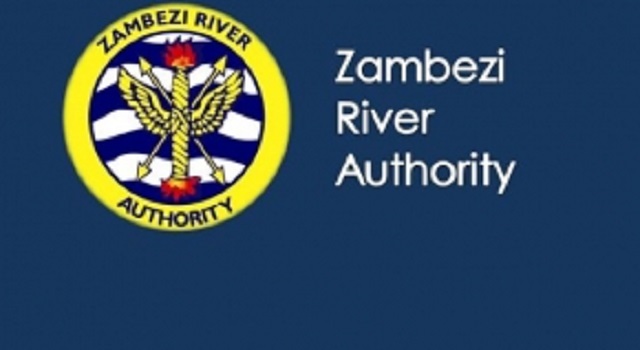Leonard Ncube recently in Livingstone, Zambia
ENERGY and Power Development Minister Edgar Moyo has called on Zimbabwe and Zambia to exercise discipline in utilising water allocated for power generation on the Zambezi River.
He emphasised the need for strategic water management to balance electricity demand with the sustainable operation of the Kariba Reservoir, thereby averting potential power outages.
Speaking at the 42nd Council of Ministers Ordinary Meeting for Energy and Finance Ministers in Livingstone, Zambia, last Friday, Minister Moyo highlighted the region’s ongoing electricity challenges.
The meeting, organised by the Zambezi River Authority (ZRA), brought together Government officials, ZRA representatives, and other stakeholders to discuss critical issues, including the water level at Lake Kariba and updates on key energy projects.

Among the projects discussed were the Batoka Gorge Hydro-Electric Scheme, the Devil’s Gorge Hydro-Electric Scheme, and the Floating Solar Photovoltaic Plant on Kariba Dam. The Council of Ministers, a bilateral cooperation body comprising Finance and Energy Ministers and Attorney Generals from both countries, oversees the management of water resources on the Zambezi River.
Finance Minister Professor Mthuli Ncube and Attorney-General Mrs Virginia Mabhiza attended the meeting virtually, while Zambia’s Finance Minister, Dr Situmbeko Musokotwane, was represented.
Minister Moyo, co-chairing the meeting with his Zambian counterpart, Makozo Chikote, noted that the session marked the conclusion of ZRA’s 2020-2024 Corporate Strategy, a period characterised by significant challenges, including the Covid-19 pandemic and El Niño-induced droughts.
He revealed that the Kariba Reservoir has experienced the third-lowest inflows in its 60-year history due to reduced rainfall. For 2024, Zimbabwe and Zambia were allocated a shared 16 billion cubic meters of water for power generation, a 61 percent decline from the long-term average. Next year’s allocation will rise to 27 billion cubic meters, subject to review at the end of the first quarter.
“I am informed that Zesco Limited utilised its full allocation of 8 billion cubic meters by mid-September 2024. However, to ensure power system stability at both national and regional levels within the Southern Africa Power Pool (SAPP), Zesco Limited was allowed to continue power generation at the minimum allowable level,” said Minister Moyo.
“On the other hand, ZPC [Zimbabwe Power Company] maintained a balance within its allocation. End-of-year projections indicate that live storage levels will be lower than anticipated, emphasising the need for disciplined water use as we enter the 2025 operational cycle.”
The Southern Africa Development Community (SADC) has forecast mixed rainfall outcomes for the 2024/2025 season, with below-normal rainfall expected in parts of the Kariba catchment area until December 2024.
“This cautious yet strategic approach aims to balance power generation needs with sustainable reservoir management of the Kariba Reservoir,” said Minister Moyo.

“We expect that the two utilities, though under pressure to meet the demand, need to exercise discipline in the utilisation of the water allocated to them by ZRA.”
Minister Moyo urged both utilities to adhere to their commitments to avoid scenarios that could trigger system-wide failures with far-reaching economic consequences.
“I am saying this because we recently experienced a total blackout that affected Zimbabwe, Zambia, South Africa, and Mozambique and the real cause is still under investigation.
“We, therefore, need to remain resolute in times of weakness and vulnerability such as now and avoid, by all means, situations that could potentially trigger such incidents which have far-reaching consequences to our power supply security and economies at large,” he said.
Minister Moyo commended progress on the Kariba Dam Rehabilitation Project, which is 82 percent complete. The plunge pool reshaping is finished, and spillway refurbishment has reached 85 percent completion, with the entire project expected to conclude next year.
ZRA is collaborating with the African Development Bank (AfDB) to construct a Floating Solar Photovoltaic Plant on Lake Kariba. AFDB has committed US$1 million for feasibility studies while the African Union and European Union have expressed interest in co-financing the project.
Feasibility studies are being worked on for the Batoka Gorge Hydro-Electric Scheme (BGHES) and the Devil’s Gorge Hydro-Electric Scheme.
Minister Moyo said the projects show the region’s resilience and innovation to ensure energy security and socio-economic development for future generations.
Minister Chikote, who assumed the rotational chairmanship of the Council of Ministers, stressed the importance of regional unity and innovative energy solutions.
“The discussions and resolutions arising from this meeting will shape the trajectory of initiatives aimed at strengthening the resilience of the Kariba Dam, optimising hydropower generation and fostering innovation through renewable energy projects,” he said.
Minister Chikote lauded the achievements of the 2020–2024 strategic period, which he said demonstrated the strength of Zimbabwe-Zambia co-operation despite unprecedented challenges posed by the Covid-19 pandemic and climate-induced droughts.
“Initiatives such as the Kariba Dam rehabilitation project and advancements in renewable energy, including the proposed floating solar photovoltaic plant, reflect our unwavering commitment to innovative and sustainable energy solutions,” he said. — @ncubeleon.

